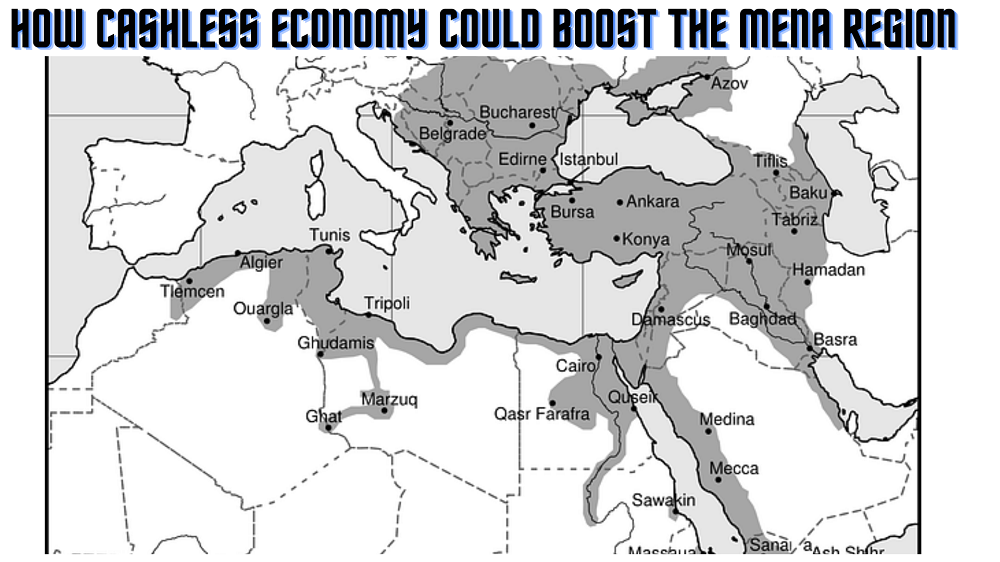The fusion of technology and finance is a common phenomenon in the 21st century. In many countries of the world, financial transactions can be conducted virtually through the use of a mobile phone or an internet-enabled device. After all, the advent of technology especially the production of smartphones and the internet has impacted commerce and industry thus increasing the volume of transactions. This has also necessitated a need for the development of digital methods of transactions to cope with increased daily transactions. Read out below to know how Cashless Boost MENA Region.

In spite of the stimulating impact of the cashless policy on the economy, the use of digital methods of transaction seems to be lagging behind in the Middle East and North Africa (MENA). While there are legitimate concerns especially pertaining to cybersecurity, the prospects of a digital economy is one that will be highly beneficial to the region.
Table of Contents
5 Benefits of Cashless Transactions in the MENA Region
Security
Ironically, while one of the major reservations against cashless policy appears to be security, the most obvious demerit of cash transactions also borders on security. However, the security concerns of cashless transactions are less severe as issues of theft could be resolved faster in the case of digital transactions than cash transactions especially when the right security protocols are in place. The availability of cash increases the possibility of violent crime in the society. Business operators could be raided, looted, and lead to severe losses especially for small scale businesses. Apart from the security concerns, transactions involving large sums of money would take a longer time to process and this may slow down the economy.
Lesser Costs
Nations in the MENA region stands to benefit from a reduction in their expenditure due to the reduction in money expended on printing currency notes. The printing of currency notes is capital intensive and notes themselves are not everlasting as the government through the banking authority may phase out old notes and print new ones. While a nation’s economy cannot be completely cashless, the money spent on printing a large volume of currency notes can be spent on infrastructural development that would benefit the citizens.
Data
Cashless transactions will simplify the task of governance in the region as it would facilitate access to data. The role of governance in the modern world is more complex than it used to be due to the sophistication encouraged by technology. However, data collated from digital banking can provide government access to data that can be used in national planning. Information is key to good governance hence the patterns of activity of the users of digital transactions could help the government in urban planning. The peculiar data of the users could also be useful in tracing and fighting crime relating to theft.
Health Protocol
Due to the COVID pandemic, the utilization of digital banking is becoming more important. However, even without the pandemic, the relevance of cashless transactions to health is fairly obvious. Quite a lot of ailments are communicable and since currency notes are in circulation and could be exchanged several times daily. This could facilitate the faster transfer of germs and viruses which could be harmful to the body. For a virus like the coronavirus which easily transmissible, currency notes can act as a transmitting agent of the virus which could end up overburdening the available health facilities.
Accountability
Financial accountability will be heightened by a system of cashless transactions. Issues such as money laundering and tax evasion will be significantly reduced. Digital payments help the government to be able to track the earnings and revenues of individuals and business entities within their enclave and thus enable them to levy the right amount of taxes. The spate of corruption will also be reduced. Once the loophole of tax evasion and money laundering is blocked then the government will have access to more funds which can thereafter be utilized in building manpower and infrastructure to serve the citizens.
The economy of the MENA region stands to benefit greatly from a large scale implementation of a cashless economy. The benefits of a cashless policy implementation transcend the individual countries and could potentially boost the economy, as well as increase the standard of living. The adoption of cashless payment systems is not entirely new to the region because most payments in the UAE are now cashless. Other countries in the region can simply follow the example of the UAE and encourage the adoption of cashless systems of payment. This approach will enable the countries in the region to boost the respective economies and develop collectively.





